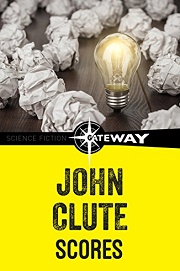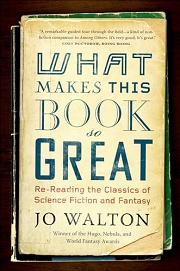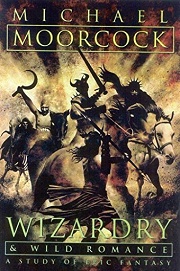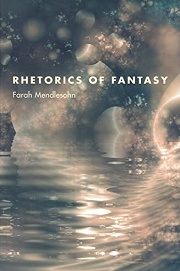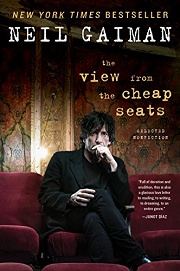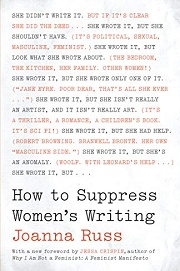Share your thoughts in a quick Shelf Talk!
Scores by John Clute
Incisive, unsparing, and vividly articulate, John Clute’s Scores charts the shifting terrain of speculative fiction through a critic’s lens. These reviews don’t just judge—they map, illuminating the patterns, innovations, and lightning strikes that shape the field.
Have you read this book? Share what you liked (or didn’t), and we’ll use your answers to recommend your next favorite read!
Love Scores but not sure what to read next?
These picks are popular with readers who enjoyed this book. Complete a quick Shelf Talk to get recommendations made just for you! Warning: possible spoilers for Scores below.
In Scores, did you enjoy ...
... barbed, witty short-form appreciations of SF/F classics and cult favorites?
What Makes This Book So Great by Jo Walton
If what delighted you in Scores was Clute’s quick, razor-edged wit and the way he can turn a two-page piece into a miniature map of a book’s virtues and sins, Jo Walton’s bite-sized essays will feel like candy. Her rereads of authors Clute also champions and skewers—like Lois McMaster Bujold’s Vorkosigan books or C. J. Cherryh’s Alliance–Union novels—deliver the same conversational sparkle and sharp insight, with affectionate candor and the occasional well-aimed jab.
... opinionated, luxuriant prose elevating (and eviscerating) fantasy’s aesthetics?
Wizardry and Wild Romance by Michael Moorcock
If you loved the lush, high-wire sentences and fearless verdicts in Scores, Moorcock’s critical tour through fantasy’s language and moods will scratch that itch. Like Clute at his most lyrical and uncompromising, Moorcock praises writers such as Mervyn Peake and Angela Carter for their rich texture while flaying work he finds thin—arguing, in rolling, baroque cadences, for fantasy that feels truly strange and alive.
... a rigorous taxonomy that clarifies how fantastika works on the page?
The Rhetorics of Fantasy by Farah Mendlesohn
If the conceptual fireworks in Scores—Clute’s coinages and frameworks for how fantastika behaves—hooked you, Mendlesohn’s model of portal, immersive, intrusive, and liminal fantasy offers a deep intellectual payoff. She dissects books from The Lord of the Rings to Jonathan Strange & Mr Norrell with the same taxonomy-minded clarity Clute brings when he anatomizes worldbuilding and narrative protocols.
... wide-ranging, personal essays and introductions that celebrate and contextualize SFF?
The View from the Cheap Seats by Neil Gaiman
If you enjoyed how Scores gathers many short, self-contained pieces that build a mosaic of the field, Gaiman’s essays and forewords offer that same mosaic in a warmer, anecdotal key. His tributes to Gene Wolfe and Diana Wynne Jones, reminiscences about Harlan Ellison, and meditations on why we tell fantastical stories echo the curatorial breadth and love of the field you found in Clute’s collection.
... sharp, satirical criticism that exposes literary gatekeeping with scalpel humor?
How to Suppress Women's Writing by Joanna Russ
If part of the appeal of Scores was its sardonic edge—those moments when Clute coolly dismantles received wisdom—Russ’s satirical manual of the many ways critics and institutions erase women’s work will resonate. Her deadpan categories (from “She didn’t write it” to “She wrote it, but…”) are as quotable as Clute’s barbs, and they’ll change how you read the reviews and histories he interrogates.
Unlock your personalized book recommendations! Just take a quick Shelf Talk for Scores by John Clute. It’s only a few questions and takes less than a minute.
